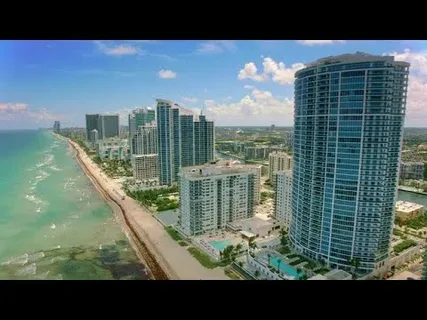The Ultimate Guide to Landlord Insurance in Florida
Owning rental property in Florida can be a lucrative investment, but it comes with its own set of risks and responsibilities. One of the most important aspects of being a landlord is ensuring that you have the right insurance coverage. In this comprehensive guide, we’ll cover everything you need to know about landlord insurance in Florida, from what it covers to how much it costs, and why it’s essential for protecting your investment.

What is Landlord Insurance?
Landlord insurance is a type of property insurance designed specifically for rental properties. It provides coverage for the building itself, any outbuildings, and sometimes even the contents owned by the landlord. This type of insurance is crucial for protecting your investment from various risks, including natural disasters, tenant damage, and liability issues.
External Link: For more detailed information on what landlord insurance covers, you can visit Simply Insurance.
Why Do You Need Landlord Insurance in Florida?
Florida is known for its beautiful weather, but it’s also prone to hurricanes, floods, and other natural disasters. These events can cause significant damage to your rental property, and without the right insurance, you could be left with hefty repair bills. Additionally, landlord insurance can protect you from liability claims if a tenant or visitor is injured on your property.
External Link: To understand the importance of landlord insurance in Florida, check out Olympus Insurance.
Types of Coverage
Landlord insurance policies can vary, but they generally include the following types of coverage:
- Property Damage: This covers damage to the building and any outbuildings caused by natural disasters, fire, vandalism, and other covered perils.
- Liability Insurance: This protects you if a tenant or visitor is injured on your property and decides to sue.
- Loss of Rental Income: If your property becomes uninhabitable due to a covered peril, this coverage can help compensate for lost rental income.
- Optional Coverages: These can include coverage for landlord-owned furnishings, legal expenses, and more.
External Link: For a detailed breakdown of the different types of coverage, visit Policygenius.

How Much Does Landlord Insurance Cost in Florida?
The cost of landlord insurance in Florida can vary widely depending on several factors, including the location of the property, the age and condition of the building, and the amount of coverage you need. On average, you can expect to pay around $2,860 per year for landlord insurance in Florida1.
External Link: For more information on the cost of landlord insurance, check out Stessa.
Factors That Affect Your Insurance Rates
Several factors can influence the cost of your landlord insurance, including:
- Location: Properties in areas prone to natural disasters or high crime rates may have higher premiums.
- Building Age and Condition: Older buildings or those in poor condition may cost more to insure.
- Coverage Amount: The more coverage you need, the higher your premiums will be.
- Deductibles: Higher deductibles can lower your premiums, but you’ll pay more out of pocket if you need to file a claim.
External Link: For a comprehensive guide on factors affecting insurance rates, visit Azibo.
Tips for Choosing the Right Landlord Insurance
- Compare Quotes: Get quotes from multiple insurance providers to find the best rate.
- Read the Fine Print: Make sure you understand what is and isn’t covered by your policy.
- Consider Additional Coverage: Depending on your needs, you may want to add optional coverages like flood insurance or legal expense coverage.
- Review Annually: Your insurance needs may change over time, so it’s a good idea to review your policy annually.
External Link: For tips on choosing the right landlord insurance, check out Simply Insurance.
Common Questions About Landlord Insurance
Q: Is landlord insurance required by law in Florida? A: No, landlord insurance is not required by law in Florida, but it is highly recommended. If you have a mortgage on your rental property, your lender may require you to have insurance.
Q: Does landlord insurance cover tenant damage? A: Yes, most landlord insurance policies cover damage caused by tenants, but it’s important to read your policy to understand the specifics.
Q: Can I require my tenants to have renters insurance? A: Yes, many landlords require their tenants to have renters insurance to protect their personal belongings and provide additional liability coverage.
External Link: For more FAQs about landlord insurance, visit Policygenius.

Conclusion
Landlord insurance is an essential part of protecting your rental property investment in Florida. With the right coverage, you can safeguard your property against natural disasters, tenant damage, and liability issues. By understanding the different types of coverage available and comparing quotes from multiple providers, you can find the best policy to meet your needs.
External Link: For more information on landlord insurance in Florida, visit Olympus Insurance.
I hope this guide helps you understand the importance of landlord insurance in Florida and how to choose the right policy for your needs. If you have any further questions or need assistance, feel free to reach out to a local insurance agent.
External Link: For a list of local insurance agents in Florida, check out Alex Insurance Agency.
Feel free to add a bit of humor or personal anecdotes to make the article more engaging. For example, you could start with a funny story about a landlord who thought they didn’t need insurance until a hurricane turned their rental property into a swimming pool! 🏊♂️
External Link: For more tips on making your articles engaging, visit Simmons Insurance.
Remember, the key to a great article is to provide valuable information in a way that’s easy to understand and enjoyable to read. Good luck!
Leave a Reply